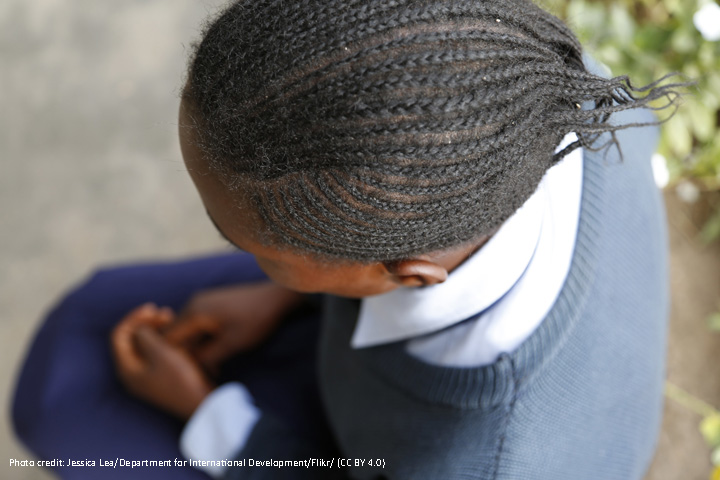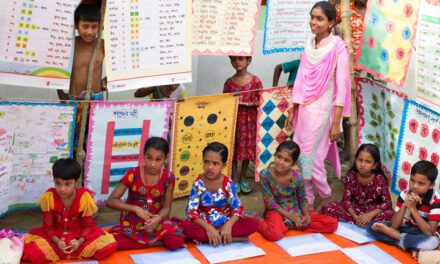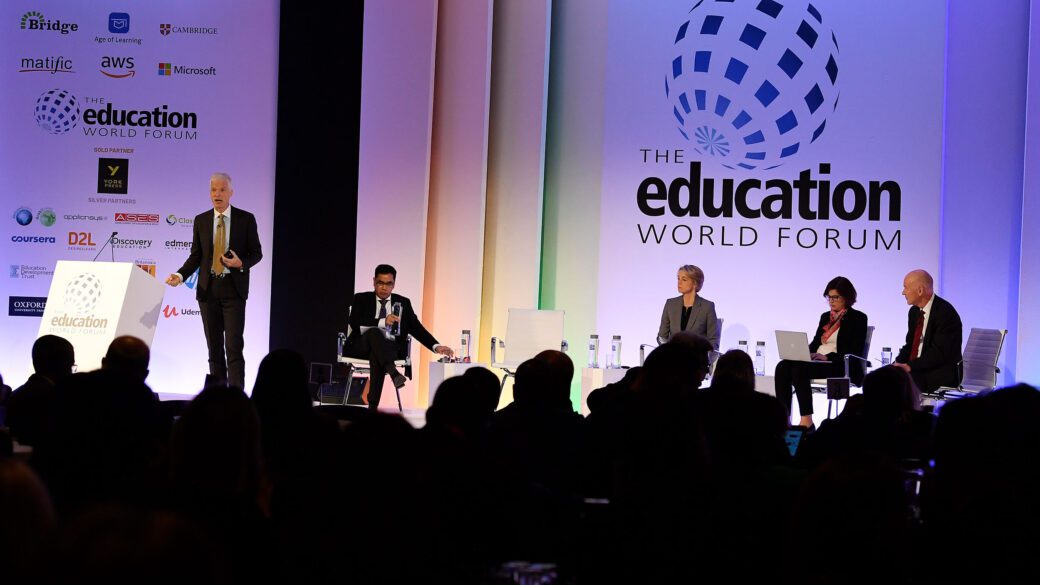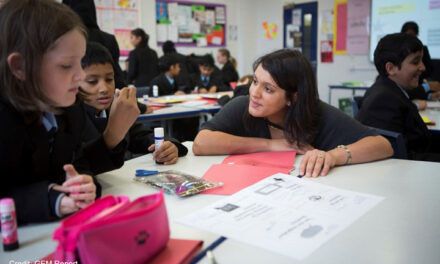This blog was written by Dr Geraldine Hutchinson FRSA, non-executive director and trustee of multi-academy trusts and charities, including the Freedom Charity. Geraldine has worked in education for more than 30 years and champions equity of access to education for vulnerable groups in the UK and internationally.
Celebrating women’s achievements
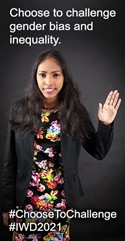 The theme for International Women’s Day 2021 (#IWD2021) is, “Women in leadership: Achieving an equal future in a COVID-19 world.” This theme celebrates the tremendous efforts by women and girls around the world in shaping a more equal future and supporting the recovery from the COVID-19 pandemic.
The theme for International Women’s Day 2021 (#IWD2021) is, “Women in leadership: Achieving an equal future in a COVID-19 world.” This theme celebrates the tremendous efforts by women and girls around the world in shaping a more equal future and supporting the recovery from the COVID-19 pandemic.
Throughout the global pandemic, women have been on the front line of the COVID-19 crisis. Working as health-care workers, nurses, teachers, caregivers in the home and community organisers. COVID-19 has emphasised the central contributions made by women in the workplace and the home, whilst shining a light on the unequal workloads they undertake.
Whilst many of the immediate impacts of COVID-19 may be negative for women and girls, recognising risk and providing extra support for women and girls to address the secondary impacts of the pandemic, will help to achieve a long-term legacy that is positive. This though, requires expert and rigorous reviews, alongside policy decisions to increase gender parity and ensure gender equity for women and girls.
What are the losses for women and girls during the COVID-19 pandemic?
Across the world, women make up 70 per cent of those on the frontlines of the health and social care sectors. COVID-19 has illustrated the reliance placed on under-paid, women-led professions: health; social care; disability, childcare and aged care; as well as education.
The impact of COVID-19 on women and girls is remarkably similar across continents and countries, though the effects vary in severity and extent according to demographic groups, location and levels of poverty. The immediate effects are reduced finances and loss of independence, unemployment and lack of access to education, which exacerbate risks and quickly lead to secondary impacts, such as violence against women and girls, sexual abuse, early and forced marriage and teenage pregnancy. Secondary impacts occur globally and are remarkably similar, whether you live in Europe, Asia or sub-Saharan Africa.
Women have experienced increased domestic violence in the home, taken on greater unpaid care duties, experienced unemployment and financial hardship when their jobs were the first to go. Lockdowns exacerbate these issues as women are confined to the home with little recourse to challenge the status quo and restricted access to the usual systems of support. All too often, policy discussions and decisions do not address the ‘lived experience’ of women and girls and their human rights are not upheld.
UNESCO estimates that the pandemic was preventing 1.52 billion children from attending school. Some of them will never return and generally, the attrition rate is greater for girls. Once out of education, girls face heightened risks of female genital mutilation (FGM) and early and forced marriage. There are increased risks to their health, including teenage pregnancy and sexually-transmitted diseases, including HIV. Around 243 million women are thought to have experienced sexual or physical abuse at the hands of an intimate partner at some point over the last 12 months.
Missed education, lack of qualifications and poor health have a long-lasting knock-on effect on the lives of women and girls. In fact, a great danger is that the secondary impacts of the pandemic will reverse the progress that has been achieved in gender equality. Estimates show that an additional 11 million girls may have left school by the end of the COVID crisis and are not likely to return, which places girls at more risk of teenage pregnancy and child marriage. Reduced access to quality education for girls widens the gender equality gap, leading to a reduction in the earning power of girls and women and long-term setbacks for workforce participation and income levels. Economic insecurity reduces the independence of women who are unable to escape abusive partners and face a greater threat of gender-based violence, including sexual exploitation.
Just by virtue of their gender, millions of girls have been deprived of their childhoods, education, health and career aspirations. This has led to increased risk of the harmful practices of child, early and forced marriage and FGM. Unfortunately, in many communities, early marriage and FGM go hand-in-hand. Over 200 million women and girls alive today in 31 countries have undergone FGM. Globally, a report from humanitarian aid organisation World Vision has found that an additional two million girls could be at risk of child marriage in the next two years due to the pandemic.
Forced marriages and arranged marriages have clear differences. In an arranged marriage, the families of both spouses take a leading role in arranging the marriage but the decision to accept the arrangement or not, is made by the individuals getting married. In a forced marriage, the families will take a leading role but crucially, the individuals getting married do not or cannot consent to the marriage. This issue is extremely complex and culturally sensitive and there can be a blurring of the boundaries between arranged and forced marriages, unless careful steps are taken to ensure that ‘consent’ is willingly and freely given.
The UK Government has produced guidance on recognising forced marriage and how to access support. It is defined by the UK Government Forced Marriage Unit as ‘a marriage without the consent of one or both parties and/or where coercion and deception is used’. Forced marriage is an abuse of human rights, a form of domestic violence against men and women and it is against the law. In the UK, local authorities are concerned that many at-risk children who are out of school, are not interacting with teachers or other professionals who normally would be able to identify the signs of forced marriage and raise concerns. There is an expectation across local authorities and charities that when lockdowns end, there will be an increased pressure for local authorities to respond to cases of forced marriages that have taken place.
It is important to note that people with learning disabilities experience greater risk of forced marriage, as it concerns their ability (or capacity) and willingness to consent to marriage. A report, published in March 2020 in the Journal of Adult Protection, found that when compared, the number of forced marriages for people with learning disabilities posed a five times greater risk, than for people without. The pressure put on people to marry against their will may be:
- physical: e.g. coercive threats, physical violence or sexual violence
- emotional and psychological: e.g. making someone feel like they are bringing ‘shame’ on their family.
What are the starting points for building back better?
To achieve positive change, governments and employers must prioritise gender issues. Most importantly, the progress that has been made to address issues of gender inequality must not be reversed by the impact of COVID-19. Now is the time to reinvigorate actions and increase efforts to ensure gender equity is achieved. There may be positive changes that have emerged as a result of COVID-19, for example, families in lockdown have experienced new patterns of domestic responsibility with greater sharing of domestic tasks. The challenge is how to spread this approach to more households and to avoid reverting to more unequal, gendered patterns of domestic labour post-COVID-19.
Lockdowns have turned a spotlight on domestic abuse and violence against women and girls (VAWG) across the world – these issues were already in the news and on the UK government agenda but now have an even higher profile. The pandemic has highlighted both existing problems of accessing services easily and quickly and the weaknesses of support services across the whole area of domestic abuse. Seeking to learn more about necessary improvements across all systems and parts of society in the UK, the Government has launched a consultation for a wide-ranging call for evidence, which will be used to inform a new VAWG strategy to run from 2021 to 2024.
A UN Women Policy Brief published in 2020, focuses on the critical role of women’s leadership in responding to COVID-19 and presents pathways for a more equitable recovery. Across the world, women are at the helm of institutions carrying out effective and inclusive COVID-19 responses, from the highest levels of government decision-making to frontline service delivery. This brief takes into account pre-existing and new constraints to women’s participation within leadership and recommends actions to increase women’s influence within decision-making processes. The recommendations call for national, regional and international policy-makers to increase women’s participation and influence within leadership. Globally, the analysis of the pandemic’s impacts on women’s political participation, illustrates that to ‘build back better’ post-pandemic, requires the inclusion and support of women and of the organisations and networks that represent them. Achieving these recommendations will require approaches that promote gender equity, inclusion and collaboration.
The role of education to promote the human rights of women and girls is crucial and these issues must be prioritised in the curriculum. In the UK, Freedom Charity prioritises education as a strategy to prevent FGM and forced marriage in schools and universities and that the message is spread to both boys and girls. Increasing understanding of the issues and raising awareness in local communities is the best way to ensure that both harmful practices are eradicated by 2030 to meet the UN Sustainable Development Goal 5.3.
|
Lesson plans in schools are supported by two books authored by Aneeta Prem (Founder of Freedom Charity) – ‘But It’s Not Fair’, specific to Forced Marriage, and ‘Cut Flowers’, specific to FGM. More than 50,000 books have been distributed to schools across the four nations of the UK. Using these stories, teachers explore issues in a sensitive way, encouraging boys and girls to understand the long-term consequences on health and mental well-being. ‘But It’s Not Fair’ is based on the lived experience of many victims of forced marriage who have been rescued by Freedom Charity. The story is based on Vinny who lives the East End of London and her friends and family. Vinny’s safe world is turned upside down when she discovers that her friend Abby who had gone abroad on holiday, does not return to school and is to be subject to a ‘forced married’. The story takes the reader on a journey – as Vinny struggles to grasp the complex issues and the cultural pressures exerted by Abby’s family members. Vinny learns that ‘forced marriage’ is against the law and that there are ways to help and support her friend Abby and that legal support is available to rescue her from a ‘forced marriage’. Teachers and students discuss the issues raised by the story to deepen understanding and of the issues, of the law and of what they can do if they know anyone who is ‘at risk’. |
Hashtags for International Women’s Day: #IWD2021 #ChooseToChallenge #GenderEquality #FreedomredTriangle #ForcedMarriage #HumanRights #FGM

